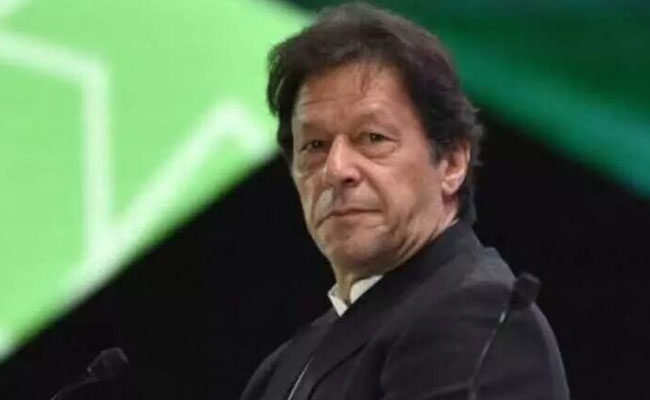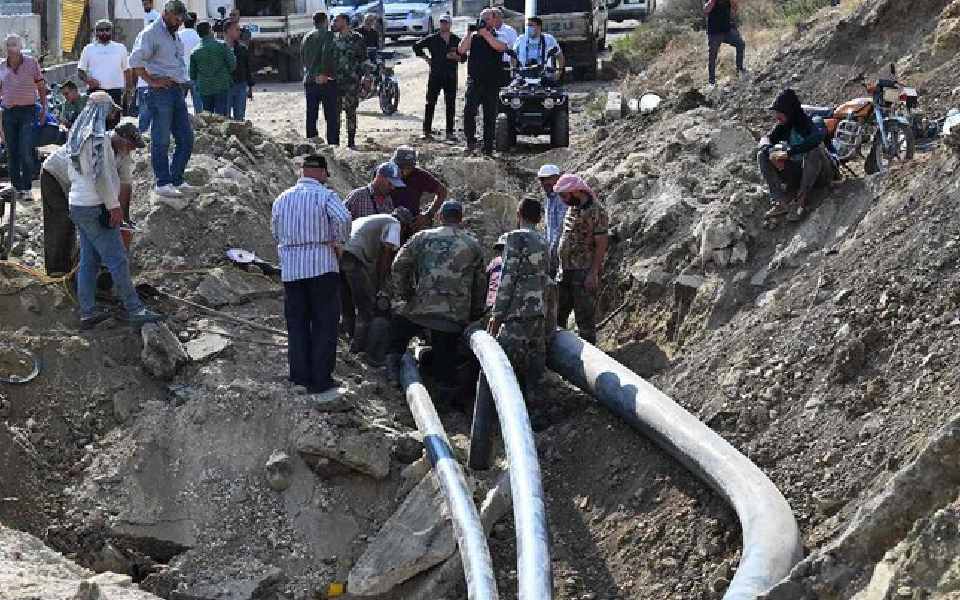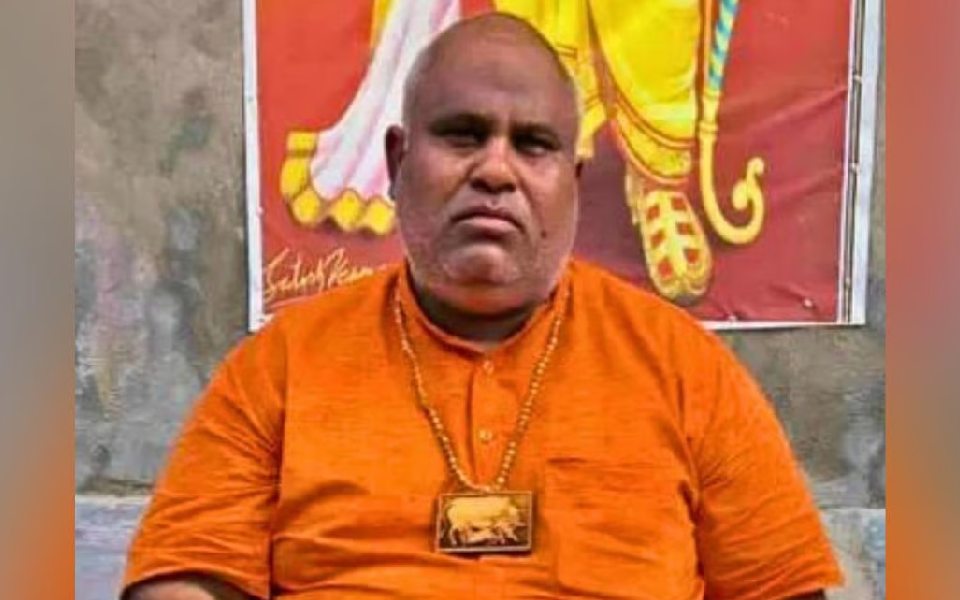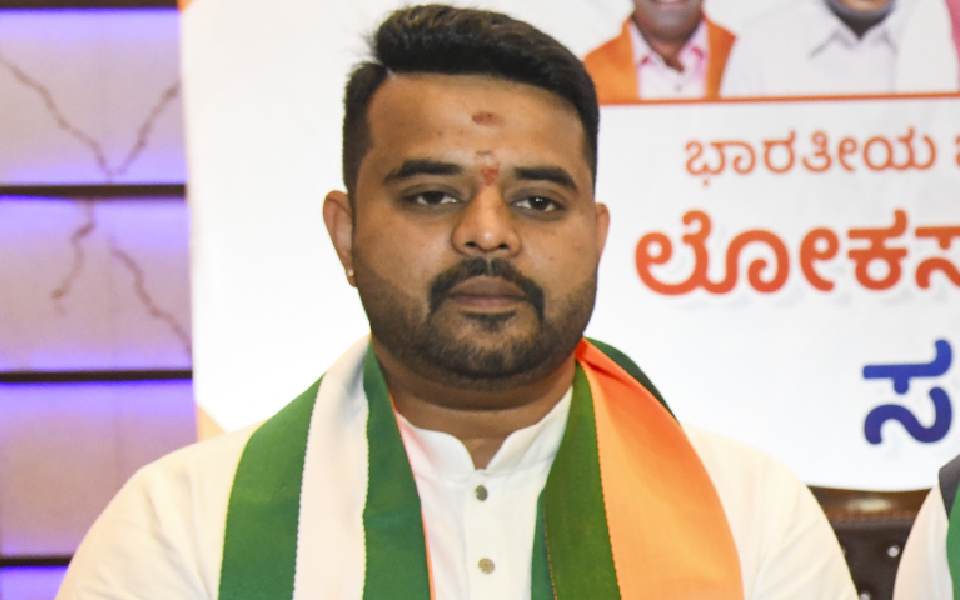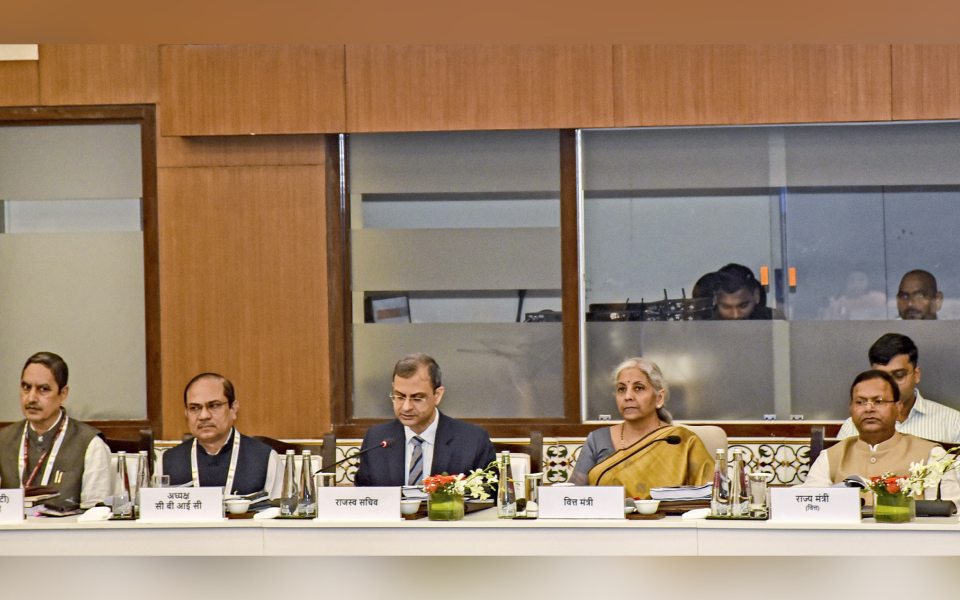Islamabad (PTI): In a fresh setback to jailed former prime minister Imran Khan ahead of general elections, Pakistan's top election body on Tuesday disqualified him for five years following his conviction in a corruption case.
In a notification issued on Tuesday, the Election Commission of Pakistan (ECP) said that the Chairman of the Pakistan Tehreek-e-Insaf (PTI) was disqualified after being found guilty of corrupt practices under Section 167 of the Elections Act, 2017 and his sentencing for three years.
The ECP declared Khan, 70, disqualified under Article 63(1)(h) of the Constitution read with Section 232 of the Elections Act, 2017.
"Therefore, Mr Imran Ahmed Khan Niazi is disqualified for a period of five years and is also de-notified as a returned candidate from constituency NA-45 Kurram-I," said the notification, a copy of which is available with PTI.
The election commission's announcement means Khan cannot stand for public office until 2028. The next general election in Pakistan is expected to be held in the coming months. The term of the current National Assembly will end on August 12. The incumbent government led by Prime Minister Shehbaz Sharif is expected to recommend the dissolution of the lower house of Parliament on Wednesday, paving the way for fresh polls.
An Islamabad trial court on Saturday sentenced Khan to three years in prison in the Toshakhana corruption case in which the embattled former prime minister is accused of profiting from selling expensive state gifts when he was in power. Khan was subsequently arrested by Punjab police from his Zaman Park residence in Lahore.
Earlier on Tuesday, Khan challenged his conviction in the Toshakhana corruption case in the Islamabad High Court, saying the verdict by a "biased" judge was a "slap in the face due process and fair trial" and "a gross travesty of justice".
Khan, who is currently lodged in the Attock Jail, appealed his conviction and the three-year prison sentence in the case by filing a plea through his lawyers at the Islamabad High Court (IHC).
The petition will be taken up on Wednesday by a two-member bench.
In his petition, Khan said that the trial judge made the conclusions on the basis of a "predisposed mind" instead of merit of the case because the petitioner's lawyer was not given the right of presenting arguments.
Khan's plea stated that the judgment passed by the trial court judge was "tainted with bias, is a nullity in the eye of the law and is liable to be set aside".
It said the order was issued without providing the petitioner with a chance to fight his case and alleged that Additional District and Sessions Judge Humayun Dilawar had refused to hear the arguments of Haris, Imran's counsel in the Toshakhana case, on the pretext that he was late - which the plea claimed was because he was filing other applications with the Supreme Court and Islamabad High Court.
Thus, the petition said, the verdict of the trial court was a "slap in the face due process and fair trial" and "a gross travesty of justice".
He also accused that the judgment given at the conclusion of hearing had already been prepared and written, which is why a 35-page verdict was issued within 30 minutes of the announcement of the decision through a short order.
The plea named the district election commissioner of Islamabad as the respondent in the case.
Separately, the IHC granted permission to Khan's lawyers to meet him in jail as the court took up a petition filed by the party seeking A-Class facilities for the ex-premier.
Khan was convicted in the case filed by the ECP last year after it had disqualified him for not showing the money he received after selling the gifts he purchased at a discounted price from Toshakhana.
The Toshakhana case says that Khan "deliberately concealed" details of the gifts he retained from the Toshakhana, a repository where presents handed to government officials from foreign officials are kept, during his time as the prime minister and proceeds from their reported sales.
Khan is accused of misusing his 2018 to 2022 premiership to buy and sell gifts in state possession that were received during visits abroad and worth more than Rs 140 million (USD 635,000).
This is the second time in three months that Khan has been arrested.
Khan was arrested on May 9 in Islamabad from the high court's premises in the Al-Qadir Trust corruption case, sparking violent protests by his supporters.
Khan faces more than 140 cases across the country and charges like terrorism, violence, blasphemy, corruption and murder.
Let the Truth be known. If you read VB and like VB, please be a VB Supporter and Help us deliver the Truth to one and all.
Masyaf (Syria), Sep 9: The number of people killed in overnight Israeli strikes in Syria has risen to 18 with dozens more wounded, Syria's health minister said on Monday — the largest death toll in such an attack since the beginning of the war in Gaza.
One of the sites targeted was a research centre used in the development of weapons, a war monitor said. Syrian officials said civilian sites were targeted.
Israel regularly targets military sites in Syria linked to Iran and the Lebanese group Hezbollah. Those strikes have become more frequent as Hezbollah has exchanged fire with Israeli forces for the past 11 months against the backdrop of Israel's war against Hamas — a Hezbollah ally — in Gaza.
However, the intensity and death toll of Sunday night's strikes were unusual.
There was no immediate comment from the Israeli military. Israel has carried out hundreds of strikes on targets inside government-controlled parts of war-torn Syria in recent years, but it rarely acknowledges or discusses the operations. The strikes often target Syrian forces or Iranian-backed groups.
Israel has vowed to stop Iranian entrenchment in Syria, particularly since Syria is a key route for Iran to send weapons to Hezbollah.
Israeli strikes hit several areas in central Syria, damaging a highway in Hama province and sparking fires, Syrian state news agency SANA said.
Speaking to reporters, Syrian Health Minister Hassan al-Ghabbash described the strikes as a “brutal and barbaric aggression”. He said the death toll had risen to 18 with nearly 40 wounded.
The Syrian Observatory for Human Rights, a UK-based war monitor, said 25 were killed, including at least five civilians, while the others included Syrian army soldiers and members of Hezbollah and other Iran-linked armed groups.
One strike targeted a scientific research centre in Masyaf, and others struck sites where “Iranian militias and experts are stationed to develop weapons in Syria”, the observatory said. It said the research centre was reportedly used for developing weapons, including short- and medium-range precision missiles and drones.
Minister of Electricity Mohammad al-Zamel said the strikes had caused “truly significant” damage to water and electricity infrastructure.
“This brutal attack targeted civilian targets, and the martyrs were mostly civilians, as were the wounded,” he said.
Local media also reported strikes around the coastal city of Tartous, which the observatory said were the result of air defense missiles falling.
On Monday afternoon, a charred car remained at the scene of one strike and smoke was still rising from some spots where fires had been put out.

